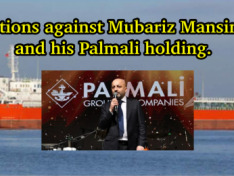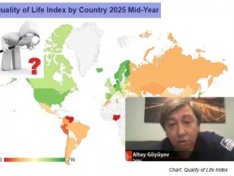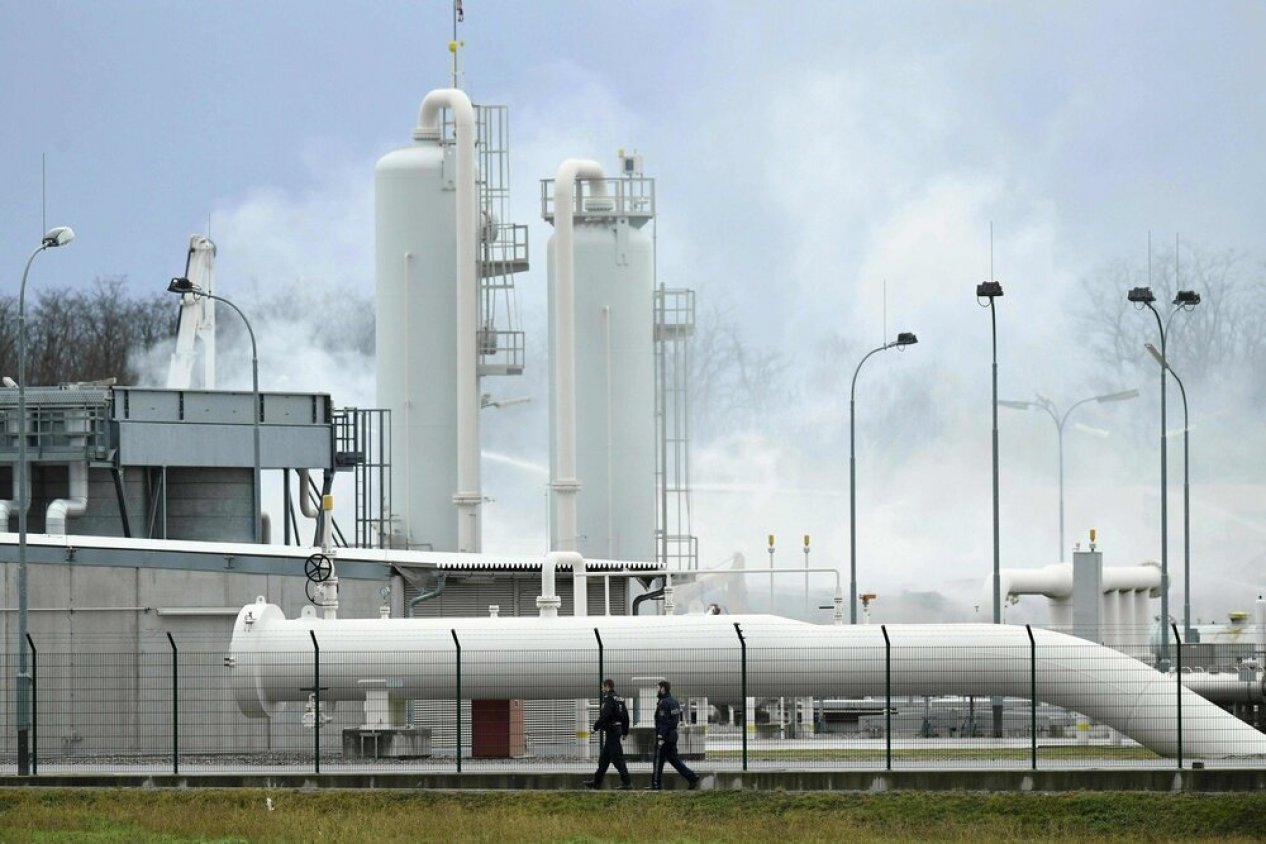
One of the most ambitious geopolitical projects of our time is the gas hub project in Türkiye. The project proposed to improve the energy security of European countries is an important element of Türkiye’s strategy. The implementation of this project will increase the prestige of the country, in addition to increasing financial revenues to the budget. Estimates vary, but it is believed that the project may bring additional income to Ankara from $30 to $35 billion.
Not surprisingly, Ankara has competitors who want to take advantage of this opportunity. One possible competitor is a gas hub project in Iran, which the country is starting to work on. Oil Minister Javad Ouji said that Russia, Qatar and Turkmenistan are interested in joining the Iranian hub. However, the minister noted that the project is in its initial stage.
“The Islamic Republic [Iran] <…>, having 33 trillion cubic meters of recoverable gas reserves, ranks second in the world in terms of reserves of this resource. <…> With the assistance of Russia, Turkmenistan and Qatar, we are striving to turn the Persian Gulf and Asalouyeh into a gas hub,” Ouji noted. He did not disclose the details of the project, but said that “the necessary preparation and planning is underway.”
Faktyoxla Lab. has tried to clarify which project is better and more profitable.
Iranian project
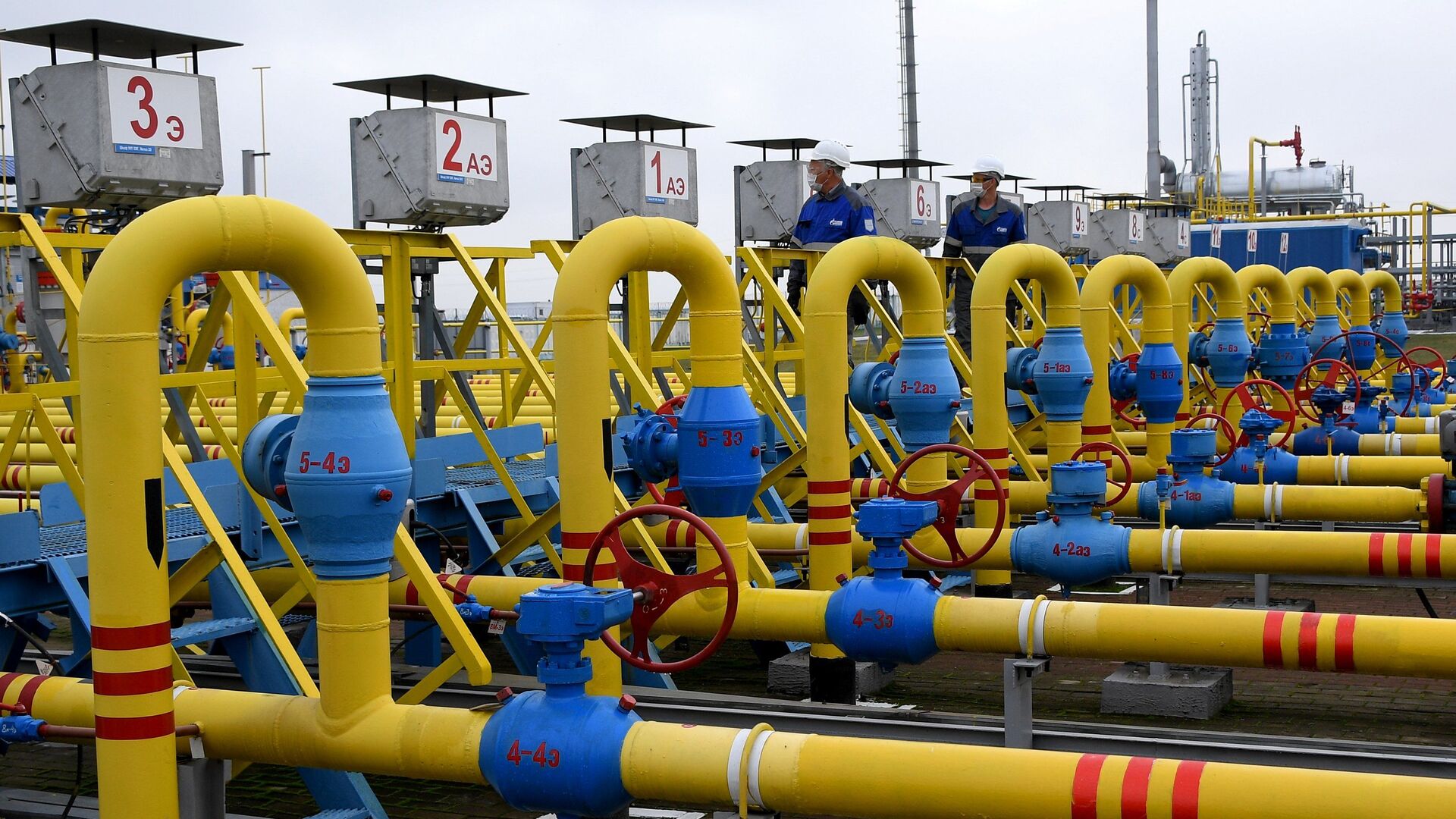
Let’s start with the fact that, given the geopolitical realities, it seems more likely that political processes will be the main driving force that will make this or that project more attractive. From this point of view, the Iranian project has significant negative sides.
The Russian Federation reacted to the statement of Javad Ouji – Deputy Foreign Minister Sergey Ryabkov said that the relevant departments of Russia would study Iran’s idea of creating a gas hub.
Russia’s interest in creating another gas hub is understandable – the country is pursuing a policy of reorienting its energy supplies in eastern and southern directions. The question is how much the gas market needs a new hub, where gas will be supplied from the same sources as in Türkiye.
BUT….
First, from the point of view of gas suppliers, the main goal is to diversify export routes. If we talk about Turkmenistan and Qatar, it would be very attractive for these countries to gain access to the European market. The logic is simple – the greatest demand exists in this market, and this will maximize the profits. In the case of Turkmenistan, this is especially true, as the alternative major market, China, is more accessible. For example, in March 2023 alone, gas exports to China amounted to 2.9 million cubic meters, increasing exports by 20.8 percent. The same can be said about Russia, which has a common border with China and does not need a hub to sell gas to China.
Secondly, access to this market is more difficult for Qatar, in terms of logistics, necessary investments and the presence of other major players. If we talk about Qatar, its gas is contracted for twenty years in advance, and other importers are in line. Why on earth should Qatar trade its gas with Iran? For what? For the sake of the verbal support that the Iranian side provided when Qatar was blockaded by the Arab countries?
Thirdly, from the point of view of the buyer, an important factor is the guarantee of stable and reliable supplies. And here the issue of sanctions that are imposed on Iran becomes relevant. An additional issue creates Iran’s unpredictability and the regime’s propensity to use hard power to advance its interests and goals. In such a situation, it is highly likely that Tehran will “hold hostage” gas buyers. Europeans have been in this situation before and it is highly doubtful that they will want to become dependent again.
Fourth, in the context of the Iranian project, another significant problem is that this hub exists only on paper. Its development, the study of its value and feasibility, and the financing and implementation of the project will take a long time, which may not be available to either potential customers or suppliers. This is a critical disadvantage of the project, which makes the prospects for its implementation even more elusive. Recently, the creation of a gas analogue of OPEC has been actively discussed, Iran may apply for the establishment of such a regulatory alliance, Igor Yushkov, a leading analyst at the National Energy Security Fund of Russia, noted. At the same time, the expert added that the pathos of the Iranian minister’s statement lies in the fact that the listed countries, which will allegedly participate in this gas hub, are world leaders in gas reserves. “And it turns out that if all these countries come together, they will have a controlling stake over the world’s gas reserves – more than 50%. This is the whole pathos of the statement,” the analyst said. He pointed out that the existing official Gas Exporting Countries Forum (GECF) is an exclusively advisory organization that does not influence anything on the world market and does not set any production quotas. “But the idea of cooperation between gas suppliers has been actively floating in the air lately. Firstly, because there is a huge turbulence in the gas market. We saw that last year the prices on the European gas exchange were $2,000 per 1,000 cubic meters, then they fell by half in just six months. Now gas is traded for $300 per 1,000 cubic meters,” the expert explained. Therefore, as Yushkov noted, such price fluctuations and turbulence in the gas market raise the question of whether it can somehow be stabilized. Especially considering that the turbulence in the oil market was overcome thanks to the OPEC+ agreement, which helped to regulate production in order to establish acceptable prices for both consumers and suppliers. “Another question arises. Such large gas producers as Russia, Turkmenistan, Qatar, Iran have long-term contracts. How will they be able to regulate production without violating the terms of the contracts? There are a lot of difficulties, but, nevertheless, discussions about creating some kind of gas OPEC are underway,” Yushkov said. “As part of the Russian Energy Week in Tehran, a round table was organized at an expert level to discuss issues of possible interaction. I was also at this expert meeting, there were many reports from both the Iranian and Russian sides, which related, among other things, to the creation of a gas OPEC. But all this is at the stage of discussion, it is not a fact that this will be implemented,” Yushkov said.
Fifth, from the point of view of rationality, it is difficult to understand the purpose of finding a hub in Iran if the key sales market is Europe, due to the fact that the gas infrastructure will have to pass through one more extra country. This would negatively affect overhead costs, lead to the need to bargain with Iran and, in general, would be a strange decision. The idea of a gas hub proposed by Iran requires expert study, such projects should be implemented without prejudice to Russia’s interests, Russian Deputy Foreign Minister Alexander Pankin said. “The issue requires expert study. I think that our colleagues are doing this,” Pankin told reporters. He noted that the energy structures of the Russian Federation will deal with this issue. “Another question is what is meant by the word “hub”. A distribution center or an exchange, an exchange does not necessarily have a hub as such,” the deputy minister added. Pankin stressed that any projects will be implemented in such a way that there is no competition with Russia’s interests.
Sixth, perhaps it would be fair to say that the only potential destination for exporting gas from their Iranian hub would be India. Indeed, India’s need for energy is increasing, and Delhi could become a very interested party in this matter. The only catch is that the volumes of gas from Russia, Turkmenistan, Iran and Qatar exceed India’s demand. In such a scenario, a conflict of interest could arise, as Iran could potentially only send its gas to India. That will not be very good for the level of trust between partners. As for the gas hub itself, it is assumed that Russian gas will be delivered to Iran through Central Asia, and Turkmen gas will also join it. Then, gas from the Iranian hub will be supplied to Pakistan and India. Because it makes no sense to “pull” it to the West, especially since Türkiye wants to create its own gas hub and they are unlikely to want to transit gas from a competing Iranian hub. Therefore, this story can rather develop in an eastern direction.
Seventh, with regard to Azerbaijan, it could well show interest in the Iranian project at the stage when it becomes more or less clear what this hub will be like, the expert believes.
Moreover, the pipeline infrastructure between Azerbaijan and Iran already exists, so any investments in it will no longer be required.
Another question is whether Azerbaijan is interested in this, since most of the gas produced by the country is contracted, and the country sells all the surplus to the European market. And to increase production, new investments are needed. Iran itself is not a gas exporter, except for the volumes for the Turkish market. Moreover, for Türkiye this is not an attractive cooperation, it keeps it only in order to balance the price situation. And that’s it. This is less than 10 billion cubic meters. That is, Iran, the world's second largest country in terms of gas reserves, exports gas in half of the export volume of Azerbaijan, which does not have such deposits. Therefore, Azerbaijan can rather take advantage of the withdrawal of the Russian Federation from the European market and sell all the surplus not to Iran, but to Europe, replacing Russian volumes.
Eighth, with regard to Turkmenistan, let us recall the commercial contradictions between this country and Iran. Despite the fact that the international court ordered Tehran to pay money to Ashgabat for the gas supplied to Iran, they answered that they would pay when Western sanctions were lifted. The problem remains. In addition, everyone knows that during the years of independence, Turkmenistan has not invested a single cent in projects outside its market. In order to sell Turkmen gas at its hub, Iran will have to build an LNG terminal. Who is it counting on? The West will not share technology with it, as there are sanctions. The only real partner may be Russia, but why does the country need all this? It is much easier for Russia to sell its gas to Pakistan and India through the TAPI pipeline in transit through Turkmenistan and Afghanistan. Why should it build a pipeline thousands of kilometers long to deliver its gas to the Persian Gulf and load it onto tankers there? It can already send liquefied gas by tankers from the Arctic LNG (Arctic LNG-2) to anyone who wants to buy.
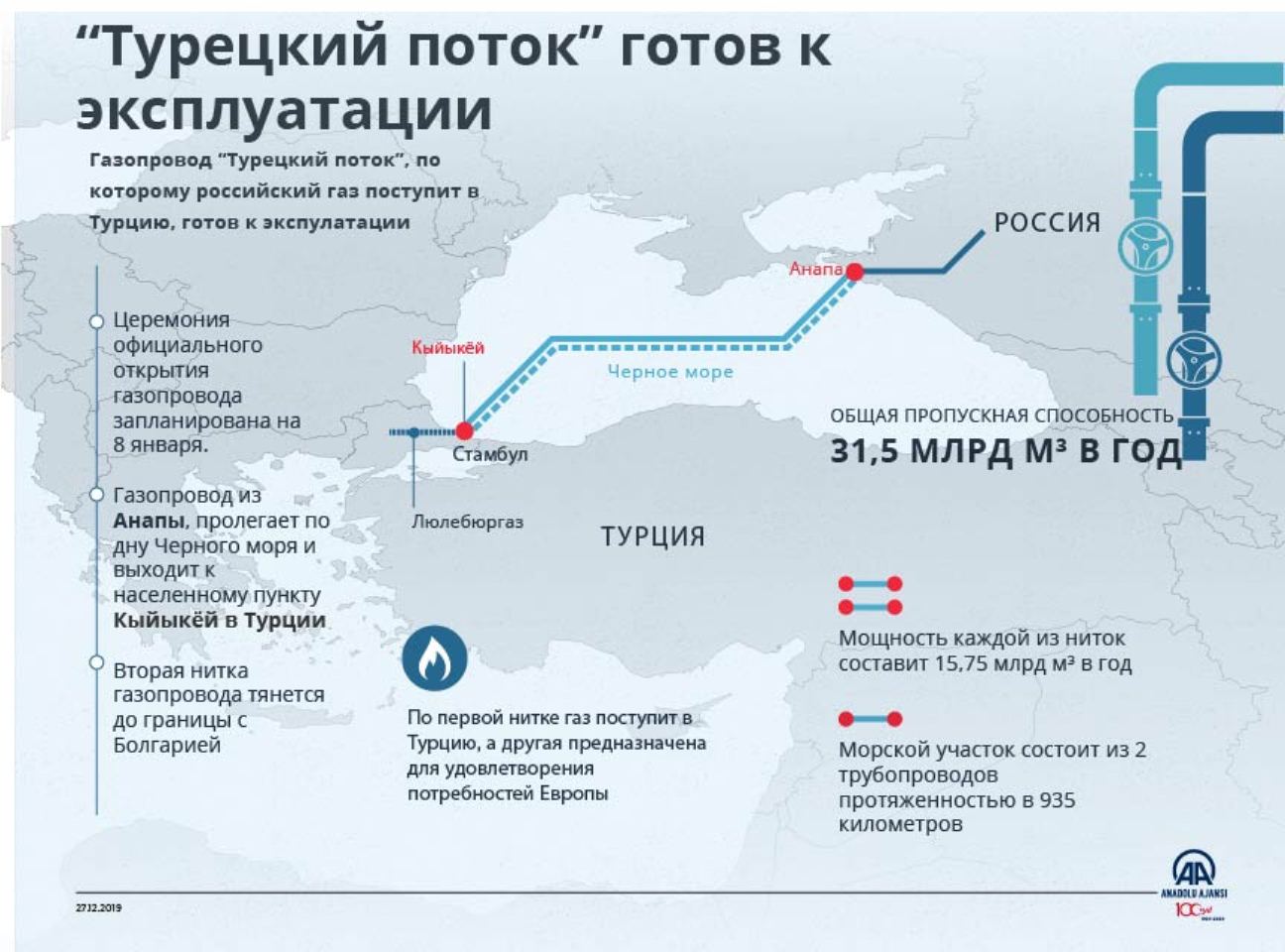
As long as the Turkish project is concerned, the situation is much more interesting.
In October 2022, Russian President Vladimir Putin came up with the idea of creating a “largest gas hub” in Türkiye to supply gas to Europe. He explained that Russia is already partially exporting gas to the EU through Türkiye via the Turkish Stream gas pipeline. It can also be used to send fuel previously supplied to Europe via the Nord Stream, laid along the bottom of the Baltic Sea, which was disabled by explosions at the end of September 2022.
A week later, Turkish President Recep Tayyip Erdogan announced that he had agreed with Putin to establish an international gas hub in Thrace, in the northwest of the country, where Istanbul is located. He noted that the hub can be created as soon as possible.
In December 2022, the head of Gazprom, Alexey Miller, spoke about the start of work on the project. Those countries that supply gas to Southern Europe can become participants in the hub: Algeria, Azerbaijan and Qatar, Deputy Prime Minister Alexander Novak noted.
During the Turkish presidential election in May, Erdogan’s rival Kemal Kilicdaroglu criticized the idea of creating a gas hub jointly with Russia. “If now Türkiye is 30–40% dependent on it in energy resources, after the creation of the hub, this dependence will grow to 70–80%,” he noted (quoted by the Anka Agency).
After winning the election, Erdogan told his supporters that Putin had raised the issue of the gas hub in his congratulations, noting that Türkiye should be a hub region. “We will take this step together with them, and Thrace will become the center,” the Anadolu Agency quoted the Turkish president as saying.
In early April, Turkish Minister Fatih Donmez said that the Turkish government had adopted the first legislative decisions that should simplify the work of oil and gas companies within the gas hub. He noted that the republic is striving to become a center for gas trade, which will eventually be sold to European countries.
In May, Turkish Energy Minister Fatih Donmez told the Haber Global TV channel that a hub for the supply of natural gas to Europe through Türkiye would be launched within a year at the most.
- In terms of politics and political culture, Ankara is a more reliable country with a large number of partners in various regions.
- Türkiye’s wide involvement and participation in various international organizations plays into the hands of the country. A greater level of integration into international political life means that it is much easier to negotiate with Türkiye, and Ankara has much less reason to act dishonestly towards hub partners, unlike Iran. This may seem like a very trivial factor, but from the point of view of international hub partners, such an advantage is very important. Especially when it comes to energy security and multibillion-dollar investments.
- The Turkish hub project is devoid of many of the shortcomings that its Iranian version is endowed with. In addition, a number of advantages make it more interesting. Türkiye has a developed gas infrastructure, in addition to the fact that Ankara is connected to Azerbaijan, Europe and Russia through international pipelines. According to information available in open sources, Türkiye can import gas from 15 countries, which confirms the high level of development of its infrastructure. This makes the Turkish hub project a very flexible tool for both potential suppliers and buyers.
- Türkiye, due to the high level of integration with the Turkic countries, can attract gas from the countries of Central Asia in transit through Azerbaijan. Such cooperation would be interesting for all parties, since Azerbaijan would be able to organize the transit of resources to Türkiye, and gas from Central Asian countries would reach the European market. This seems like an ideal scenario from which everyone will benefit. Thanks to the economic, cultural and political proximity between the Turkic countries, it would be possible to create and develop new economic ties between different countries and distant regions. Without a doubt, this is what makes the Turkish gas hub a very special project.
- All of the above can be attributed to Qatar. Thanks to the Turkish hub, Qatar would also gain access to a new market, which would have a positive impact on the political and economic influence of the country;
- The presence of hubs, as expected, will allow the Russian Federation to increase the volume of supplies, and in the case of the Turkish hub, also depersonalize its gas.
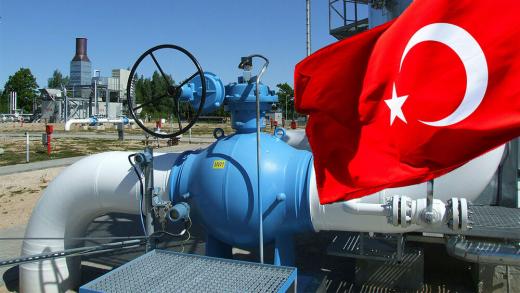
Conclusion:
- This statement by Iran is purely propaganda. It just doesn’t want to be left behind by Türkiye and is trying to be attractive. In 12 years of Western sanctions, Iran has failed to attract not only giants like Rosneft and Gazprom to its energy market, but also private companies from Russia and China. It failed to reach an agreement with anyone on the transit of energy resources of producing countries through Iranian territory;
-The Iranian project has serious structural shortcomings (political and economic ones);
-Given the growing urgency of the problem of energy security, the Iranian hub is not a solution. Rather, it will introduce an additional variable that could have a very negative impact on the energy security equation;
-The Iranian project seems highly dubious and is considered by many to be stillborn;
-Türkiye has more balanced relations with other countries. Ankara’s proximity to potential exporters will allow it to create new economic and political ties from which everyone will benefit;
- The Turkish plan seems to be more thoughtful, systematic and useful for more participants.


